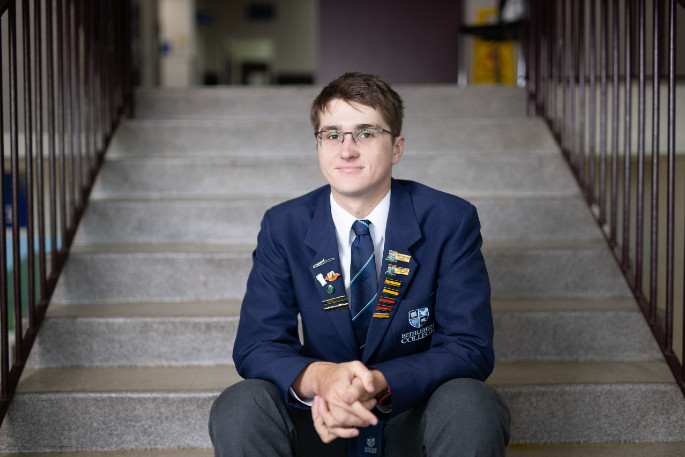An aspiring scientist has won an award for his breast cancer data research that could have applications for other illnesses.
James Zingel from Tauranga has won the 2020 Prime Minister's Future Scientist Prize. He is 'absolutely flattered” and stoked to be chosen as the winner.
For the project, James ran a breast cancer dataset through a classic computer and quantum computer to see which is superior at analysing the data.
The dataset has information from thousands of breast cancer patients and included details about the size and colour of tumours.
James trained a model on both computers to see which factors of the data are important and to predict the correct class of cancer.
He adds if you just look at data defining the cancer can be unclear, when a doctor looks at the data they have to come to their own conclusion.
'In medicine it's really important that you have an early diagnosis that's correct. If the computer can correctly identify what the disease is you have a much better chance of surviving it.”
James' model was around 80 per cent accurate and he says computers are increasingly being used for medical data analysis.
'In hospitals they're using a lot more identification and classifying with computer systems.
'You can hugely the assist doctors and potentially save thousands of lives with the correct diagnostics.”
The 19-year-old says his research can be applied to other areas as well.
'You could extrapolate this to many, many different other types of cancers and illnesses.”
James chose to focus on breast cancer because it is a big issue in today's society and the dataset was readily available online.
His findings concluded that currently the classical method is better than the quantum one but he thinks as quantum computing grows the quantum algorithm will outperform the classical one in the near future.
James taught himself linear algebra and the ingenious methods used to calculate algorithms. He has gone from a general understanding of quantum physics theory, to describing it in maths, and finally coding it in a language that generates coherent results.
The Prime Minister's Science Prize judges are impressed with how James 'threw himself wholeheartedly into his project”.
He has spent hundreds of hours on the project and it took up a lot of spare time during his last two years at Bethlehem College.
This is not the first time this research has won James accolades, he was awarded top research project at the Barcelona International Youth Science Challenge in 2019.
Bethlehem College Principal Larne Edmeades has great hopes for what James will be able to achieve in the future.
'James' project was obviously a very significant part of his senior schooling here at Bethlehem, but to be fair, the majority of the momentum came from James himself.
'I'm sure, given his whole-hearted approach, he will do tremendously well with like-minded and talented people at university level.”
James is in his first year at the University of Auckland studying a Bachelor of Science, double-majoring in physics and mathematics.
He plans to do his honours and PhD with the aim of becoming a quantum physicist. His Future Scientist prize of $50,000 will support his studies and he hopes it will make it a lot easier to achieve his goals.

